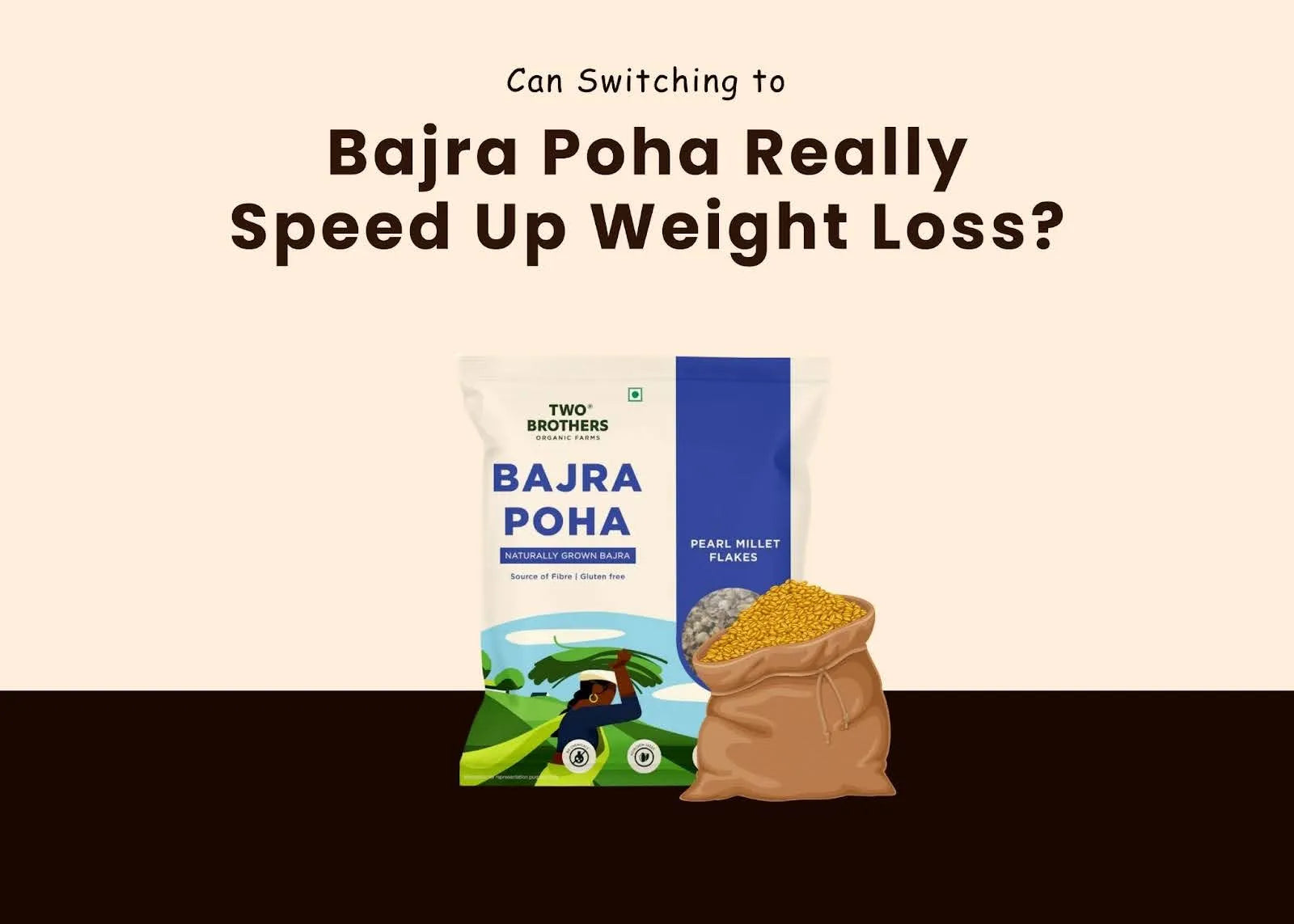In a world where sugar is in almost everything—from lattes to salad dressings—many of us are painfully aware that refined sugar is wreaking havoc on our waistlines, energy levels, and overall health. Enter jaggery, a traditional, unrefined sweetener made from boiling sugarcane juice or palm sap. With its warm amber hue, rich molasses-like flavor, and slight caramel notes, jaggery feels wholesome. It’s also often positioned as a healthy sugar replacement, a natural sweetener rich in trace minerals.
But can jaggery really help with weight loss, or is it just a clever marketing ploy? This guide will explore the truth behind jaggery for weight loss, delving into jaggery nutrition facts, metabolism benefits, scientific insights, and practical tips on how to use it wisely. We’ll also explain why choosing our pure, chemical-free jaggery can make all the difference.
Why Is Jaggery Often Seen as a Healthier Alternative to Sugar?
Compared to refined white sugar—which is processed, stripped of all nutrients, and devoid of flavor—jaggery feels like the better option. It retains natural minerals like iron, magnesium, potassium, and calcium. Its molasses content gives it an earthy taste and adds depth to any dish. Unlike pure sucrose, jaggery comes with tiny nutritional perks that give it a more natural appeal.
This perception grows even stronger when weight loss is the goal. After all, isn’t switching to a more natural, nutrient-rich sweetener a sign of smarter eating?
Growing Interest in Natural Sweeteners for Weight Loss
Health-conscious consumers are increasingly turning away from synthetic sweeteners and sugar substitutes like stevia or sucralose. Instead, there’s a desire for minimally processed, organically grown sweeteners that represent tradition and authenticity: honey, maple syrup, date sugar, and yes—jaggery.
As more people adopt clean eating, paleo, or low-GI diets, there’s room for occasional sweetness as long as it’s real, unprocessed, and used sparingly. This trend positions jaggery not just as a culinary choice, but a lifestyle statement aligned with whole food wellness.
What Exactly Is Jaggery?
Jaggery, known by names like gur (Hindi) or panela (Latin America), is crafted by boiling down freshly extracted sugarcane juice or palm sap until it thickens and dries into dense blocks. The difference between jaggery and refined sugar is striking:
-
Processing: Jaggery undergoes minimal processing with no bleaching or refinement.
-
Nutrient retention: It keeps more vitamins and minerals than white sugar.
-
Taste and texture: Its rich, complex flavor profile and dense texture make it a flavorful addition to recipes.
Still, it’s crucial to remember that jaggery is still very much sugar—with a high carbohydrate load and moderate glycemic index (typically in the range of GI 84–96). Replacing white sugar with jaggery doesn’t eradicate calories; it just makes those calories feel “better.”
Read More- Jaggery for Weight Loss – Myth or Fact?
Can Jaggery Help with Weight Loss?
Insights from Jaggery Nutrition Facts
A spoonful of jaggery (about 12 grams) contains roughly:
-
40–45 calories
-
Around 10–11 grams of sugar
-
Trace minerals: iron (~5%), calcium (~2%), potassium and magnesium (~1%)
While these quantities may seem small, they add up—especially since sugar is calorie-dense. Where jaggery differentiates itself is not in calorie savings (there are none), but in added micronutrients that white sugar lacks.
Is Jaggery a Metabolism Booster?
Some suggest that jaggery counts among foods that boost metabolism because it provides a quick energy lift and contains minerals that support enzymatic function. While we do need minerals like magnesium to aid energy production and lithium to regulate mood, these benefits are minor unless part of a fully nutrient-rich diet.
Could using jaggery make your body metabolize glucose more effectively than white sugar? Yes, but only marginally so—and only when you substitute it in small quantities while reducing total sugar intake.
Scientific Perspective: Does It Actually Burn Fat?
When it comes to burning fat, there’s no scientific shortcut tied to a single food. Sustainable weight loss depends on a calorie deficit, consistent activity, and generally healthy dietary patterns—not magic ingredients.
Jaggery’s GI is high. When consumed in excess or without balance, it still causes sugar spikes, insulin release, and fat storage. While minerals in jaggery may slightly enhance nutrient uptake and energy turnover, that alone won’t trigger fat loss.
So, while jaggery nutrition facts show more vitamins and minerals than sugar, its calorie count and metabolic effect remain similar. Use it wisely, not as a weight-loss solution.
The Right Way to Use Jaggery
If you want to include jaggery in a weight-loss-friendly diet, here’s how to do it smartly:
-
Use tiny portions—1/4 to 1/2 teaspoon per serving.
-
Pair it smartly—mix it into protein-rich dishes or fibre-rich smoothies to buffer insulin response.
-
Avoid frequent use—save it for places where its flavour shines, like a warm porridge or herbal tea.
-
Monitor your blood sugar if you have existing metabolic concerns.
-
Track overall intake—don’t assume minimal roughness means unlimited use.
Used purposefully, jaggery can elevate taste without sabotaging your health goals.
Read More - Can Diabetics Eat Jaggery in Moderation?
Why You Should Choose Our Jaggery
Not all jaggery is created equal. Cheap commercial blocks may contain hidden additives like artificial colouring, bleaching agents, or preservatives, all of which can sabotage well-being.
By contrast, our product is:
-
100% pure and organic—no chemicals, pesticides, or sulphur.
-
Traditionally prepared in iron cauldrons, preserving nutritional integrity.
-
Traceable from farm to kitchen, ensuring authenticity and ethical production.
With our jaggery, you're choosing mindful sweetness crafted for clean living. If you want to elevate snacks or replace sugar in chilli drinks, chai, or porridge, choose quality that enhances, not detracts, from your health.
FAQs
Q: Is jaggery good for metabolism?
It can support metabolic function better than refined sugar due to its mineral content—but it’s not a standalone metabolism booster.
Q: Can jaggery be included in a keto diet?
No, since it’s high in carbs, it's not suitable for keto or strict low-carb plans.
Q: Can diabetic individuals use jaggery in moderation?
Only with strict oversight, small portions, and balanced meals. Monitor blood glucose carefully.
Q: Does jaggery cause weight loss faster than sugar?
No, its effects on weight depend on total calorie intake. While it's better nutritionally, it’s not calorie-free.
Q: How should jaggery be stored?
Keep it in an airtight, light‑proof container in a cool, dry place. Refrigerate if the climate is humid.
Conclusion
So, is using jaggery for weight loss smart or silly?
✅ It’s smart if:
-
You choose high-quality, organic jaggery.
-
You use small amounts—occasionally.
-
You pair it wisely with whole foods.
❌ It’s silly if:
-
It replaces entire meals or is used in large quantities.
-
You mistake it for a diet shortcut or health tonic.
When used intentionally, jaggery can transform indulgence into value, offering aroma, minerals, and flavor that elevate food without blowing your diet. Just remember: moderation matters more than the sweetener.











